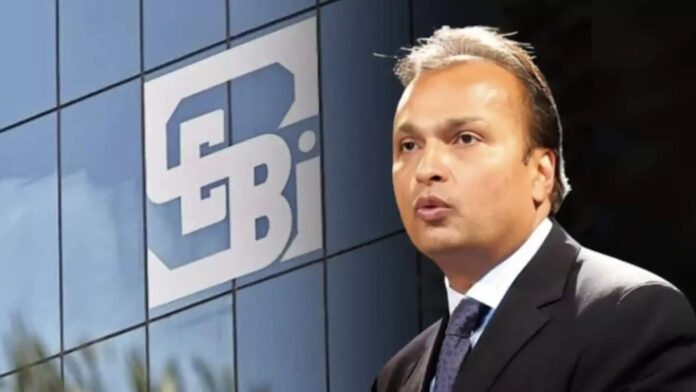Anil Ambani and Others Challenge SEBI’s Rs 625 Crore Penalty Over Alleged Fund Diversion
Anil Ambani, once one of India’s most prominent business tycoons, and several other entities have appealed against a recent directive by the Securities and Exchange Board of India (SEBI), which imposed a hefty penalty exceeding Rs 625 crore. The appeal, which will be heard by the Securities Appellate Tribunal (SAT) on October 18, centers around allegations of fund diversion at Reliance Home Finance Ltd. (RHFL), a subsidiary of the Anil Ambani-led Reliance Group.
SEBI’s Penalty and Market Ban
SEBI, the regulatory authority for India’s securities markets, has not only levied a significant fine on Ambani and other individuals involved in the case, but also banned them from participating in the securities market for a period of five years. This move comes after an extensive investigation by SEBI into the financial operations of RHFL, uncovering what it described as a “fraudulent scheme” involving fund diversion.
While Ambani has been slapped with a five-year market ban, RHFL itself received a relatively lighter sanction of a six-month market restriction. The disparity in penalties has drawn attention, particularly given the scale of the alleged fund diversion scheme.
SEBI’s Investigation and Findings
SEBI’s investigation, detailed in a comprehensive 222-page report, revealed a troubling picture of mismanagement and fraudulent activities within RHFL. According to the findings, Ambani, along with key personnel at RHFL, allegedly orchestrated the diversion of funds by misrepresenting them as loans to entities with direct or indirect connections to Reliance Group companies.
The report highlights that RHFL’s board had raised concerns about the company’s lending portfolio, but these concerns were dismissed. SEBI’s findings pointed to an alarming increase in RHFL’s loan portfolio, which ballooned from Rs 3,742.60 crore in 2017-18 to Rs 8,670.80 crore in 2018-19. This sharp rise was accompanied by significant defaults, leading to a deeper financial crisis for the company itself.
The investigation also identified several instances of loans being granted to companies with little to no financial standing. Many of these loans, approved by RHFL’s credit committees, were processed without adequate due diligence, raising serious questions about governance and risk management at RHFL. SEBI noted procedural lapses in the loan approval process, including incomplete documentation, insufficient eligibility checks, and expedited approvals.
Involvement of Key Individuals and Entities
Beyond Anil Ambani, several key individuals who held significant positions at RHFL have also been implicated in the case. These include Amit Bapna, Ravindra Sudhalkar, and Pinkesh R. Shah, each of whom has been fined between Rs 21 crore and Rs 27 crore.
In addition to the individuals, other entities tied to the scheme have been penalized. Companies such as Adhar Project Management and Consultancy Pvt. and Reliance Big Entertainment Pvt. have been fined Rs 25 crore each. These firms are accused of being beneficiaries of the diverted funds, as the loans extended to them were allegedly a front for fund siphoning.
Fund Diversion Scheme and Expedited Loan Approvals
SEBI’s investigation was sparked by multiple complaints alleging fund diversion at RHFL. These complaints prompted a deep dive into the company’s lending practices, revealing a pattern of expedited loan approvals to entities with questionable creditworthiness.
The loans approved during the period under scrutiny were not only poorly vetted but were also granted to entities that SEBI found had little financial backing to repay them. This resulted in widespread defaults, further contributing to RHFL’s financial woes. The rapid expansion of the company’s loan book, combined with weak oversight, raised significant red flags, both within the company and among regulators.
SEBI’s report detailed how the loan approval process at RHFL bypassed standard protocols, with key decision-makers allegedly fast-tracking applications without conducting proper due diligence. The investigation found that RHFL’s credit committees were responsible for approving many of these high-risk loans, despite the apparent lack of documentation or financial assessments that would justify such approvals.
Anil Ambani’s Response and Legal Proceedings
Anil Ambani and the other implicated parties have vehemently denied the allegations and have now turned to the Securities Appellate Tribunal in an attempt to overturn SEBI’s order. They argue that the regulator’s findings are based on flawed interpretations and that the penalties imposed are disproportionate. The appeal will be heard on October 18, when the SAT will decide whether to uphold or overturn SEBI’s directive.
This is not the first time Ambani has faced legal challenges related to his businesses. Over the years, the financial health of several companies under the Anil Dhirubhai Ambani Group (ADAG) has deteriorated, leading to significant debt burdens and legal disputes. RHFL, once a key player in the housing finance sector, has been at the center of several controversies related to its financial practices, including this latest case of alleged fund diversion.
Conclusion
As the legal proceedings unfold, the case continues to cast a spotlight on the governance and risk management practices within RHFL and the broader Reliance Group. SEBI’s investigation has uncovered a web of questionable lending practices, with loans granted to entities lacking the financial capacity to repay them. The scale of the penalties imposed on Anil Ambani and other entities involved underscores the seriousness of the allegations.
The upcoming hearing at the Securities Appellate Tribunal will determine whether SEBI’s order will stand or if Ambani and the other parties will succeed in their appeal. For now, the case serves as a reminder of the importance of strong corporate governance and adherence to regulatory standards, particularly in the financial sector. With RHFL’s reputation and financial stability on the line, the outcome of this case could have far-reaching implications for the company and its stakeholders.


